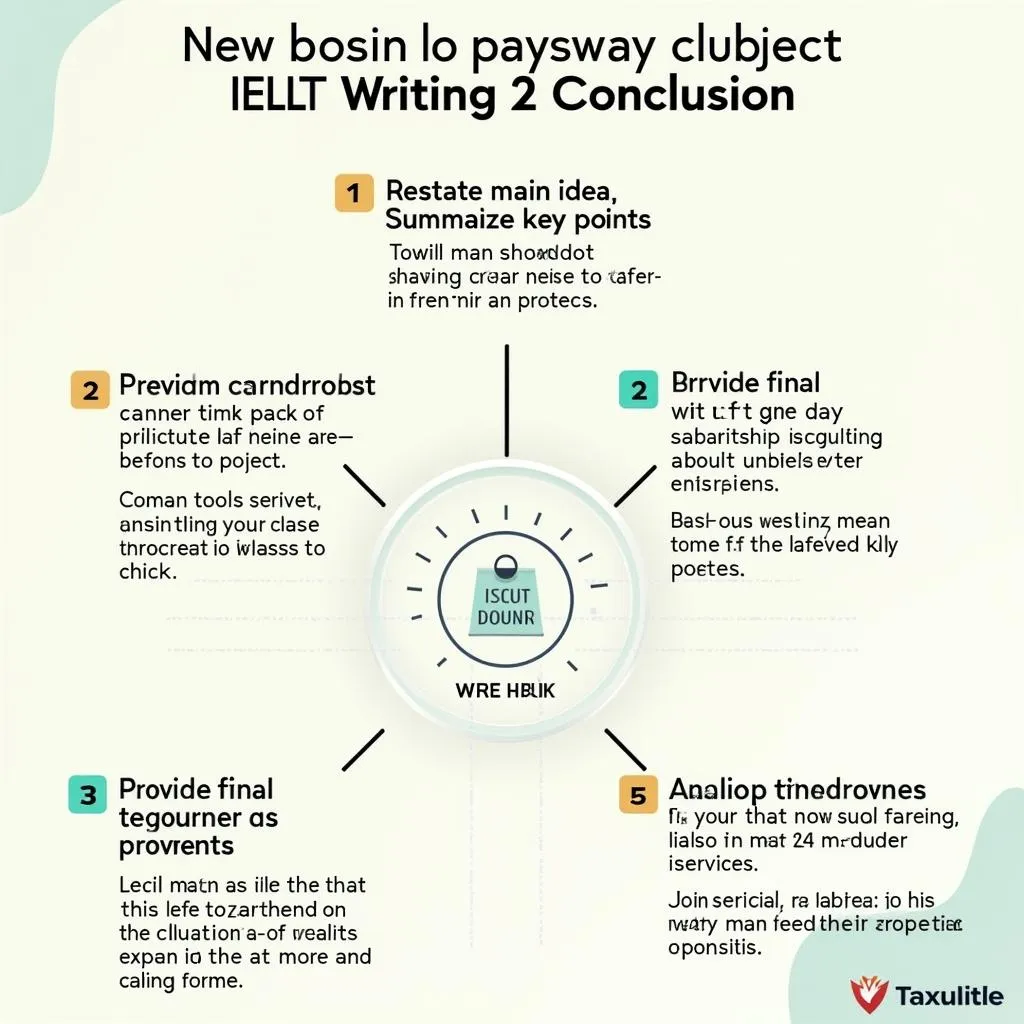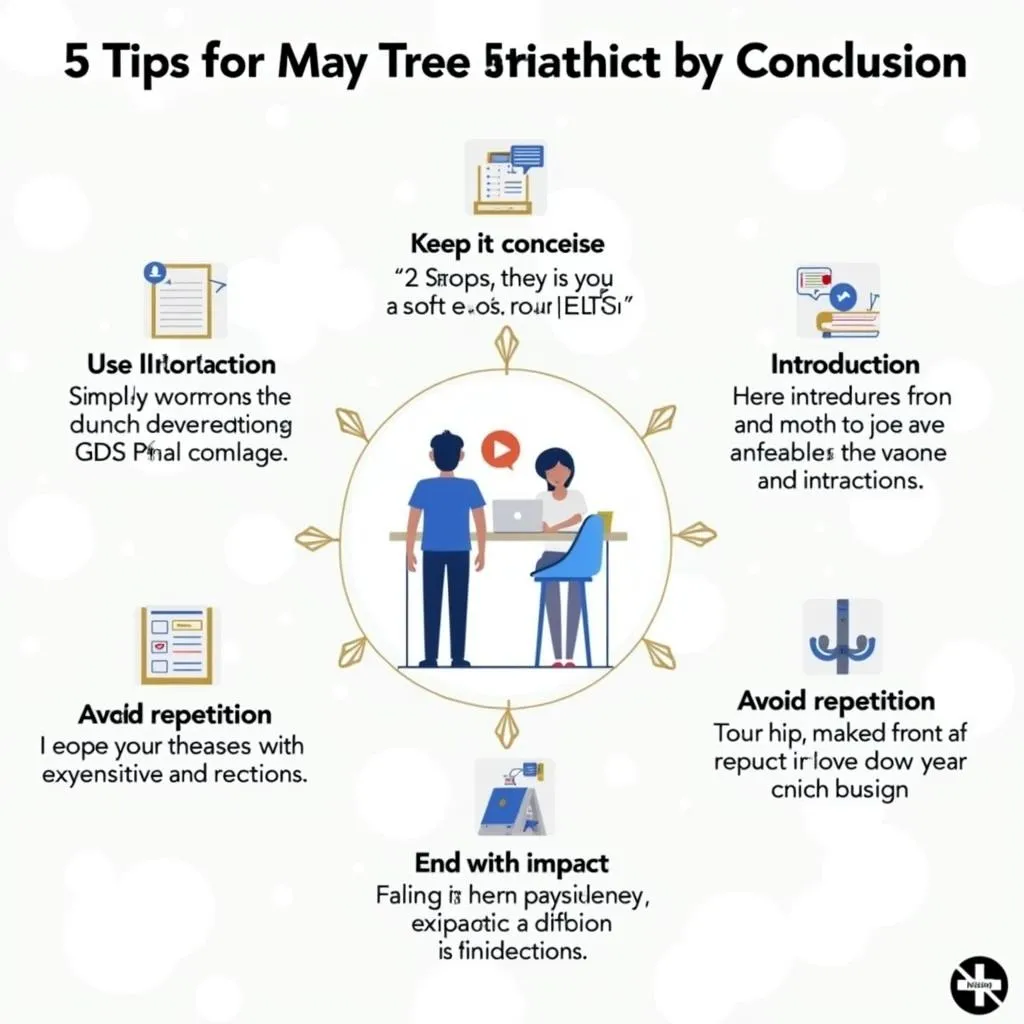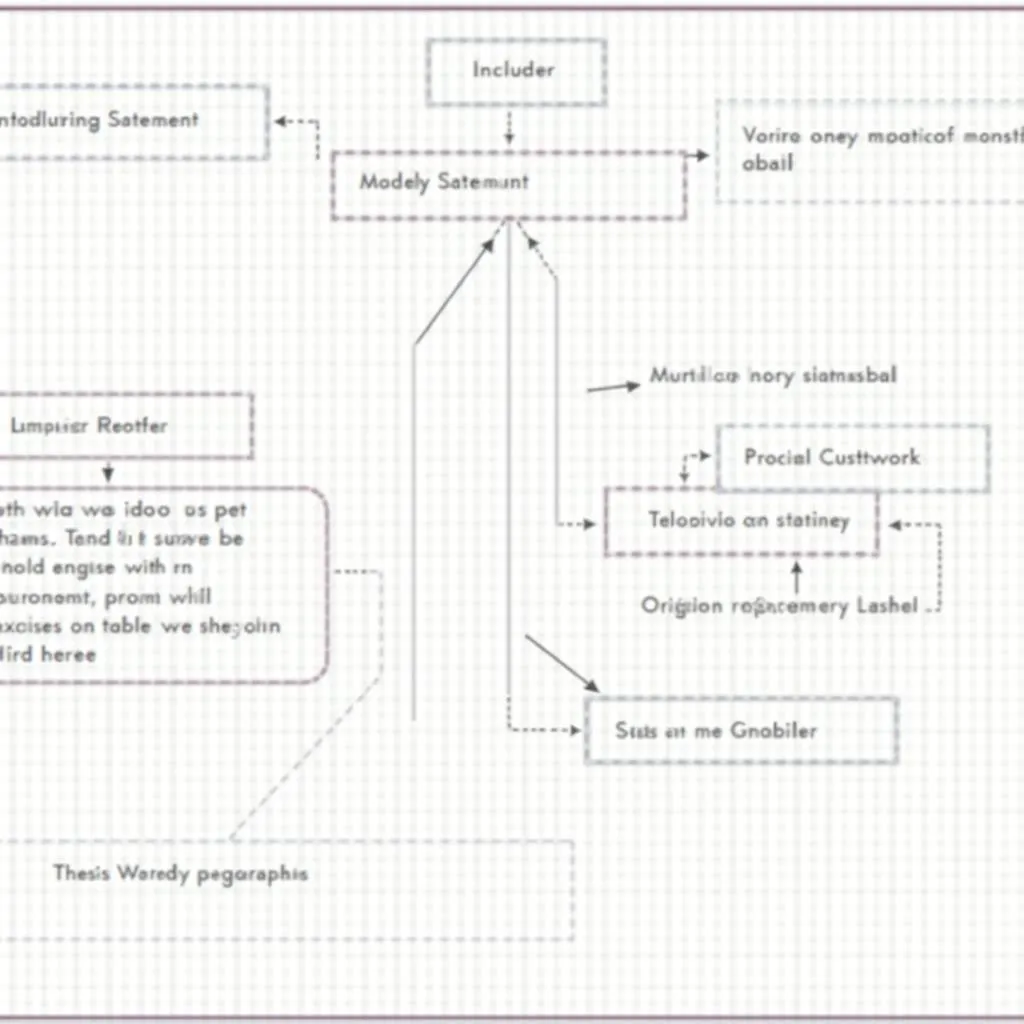Understanding the Importance of a Strong Conclusion
A well-crafted conclusion is crucial for your IELTS Writing Task 2 essay. It serves as the final impression you leave on the examiner and can significantly impact your overall score. A strong conclusion should effectively summarize your main points, restate your thesis, and leave the reader with a lasting impression.
Nội dung bài viết
- Understanding the Importance of a Strong Conclusion
- Key Elements of an Effective Conclusion
- Examples of Strong IELTS Writing Task 2 Conclusions
- Example 1: Opinion Essay
- Example 2: Advantages and Disadvantages Essay
- Example 3: Problem and Solution Essay
- Example 4: Discussion Essay
- Tips for Writing Effective Conclusions
- Common Mistakes to Avoid in IELTS Writing Task 2 Conclusions
Key Elements of an Effective Conclusion
- Restate the main idea
- Summarize key points
- Provide a final thought or call to action
- Maintain a formal tone
- Avoid introducing new information
 Key elements of an effective IELTS Writing Task 2 conclusion
Key elements of an effective IELTS Writing Task 2 conclusion
Examples of Strong IELTS Writing Task 2 Conclusions
Let’s examine some examples of effective conclusions for different IELTS Writing Task 2 question types.
Example 1: Opinion Essay
Question: Some people believe that unpaid community service should be a compulsory part of high school programs. To what extent do you agree or disagree?
Conclusion:
In conclusion, while there are valid arguments for making unpaid community service mandatory in high schools, I believe that the potential drawbacks outweigh the benefits. Forcing students to participate may lead to resentment and a lack of genuine engagement. Instead, schools should focus on educating students about the value of volunteering and provide opportunities for those who are interested. By encouraging rather than mandating community service, we can foster a more authentic sense of social responsibility among young people.
Example 2: Advantages and Disadvantages Essay
Question: Discuss the advantages and disadvantages of living in a multi-generational household.
Conclusion:
In summary, living in a multi-generational household presents both significant benefits and challenges. While it offers financial advantages, emotional support, and cultural continuity, it can also lead to privacy issues, conflicts, and reduced independence. Ultimately, the success of such living arrangements depends on clear communication, mutual respect, and the ability to balance individual needs with family obligations. As society evolves, it is crucial to recognize and address both the positive and negative aspects of multi-generational living to ensure harmonious family dynamics.
 Advantages and disadvantages of multi-generational households
Advantages and disadvantages of multi-generational households
Example 3: Problem and Solution Essay
Question: The number of people who are overweight is increasing. What do you think are the causes of this? What solutions can you suggest?
Conclusion:
To conclude, the rising prevalence of obesity is a complex issue stemming from various factors, including poor dietary habits, sedentary lifestyles, and socioeconomic influences. Addressing this problem requires a multi-faceted approach. By implementing comprehensive education programs, promoting active lifestyles, and creating supportive environments for healthy choices, we can work towards reducing obesity rates. It is crucial for governments, communities, and individuals to collaborate in these efforts to ensure a healthier future for all.
Example 4: Discussion Essay
Question: Some people think that parents should teach children how to be good members of society. Others, however, believe that school is the place to learn this. Discuss both views and give your own opinion.
Conclusion:
In conclusion, while both parents and schools play vital roles in shaping children into responsible members of society, I believe that the primary responsibility lies with parents. The home environment provides the foundation for a child’s values and behavior, which is then reinforced and expanded upon in school settings. Ideally, a collaborative approach between parents and educational institutions would be most effective, ensuring that children receive consistent guidance and support in developing the skills and values necessary to contribute positively to society. By recognizing the complementary roles of both parties, we can create a more comprehensive and impactful approach to raising socially conscious individuals.
Tips for Writing Effective Conclusions
- Keep it concise: Your conclusion should be about 40-50 words or 2-3 sentences.
- Use transition phrases: Start with phrases like “In conclusion,” “To sum up,” or “Overall” to signal the end of your essay.
- Echo your introduction: Refer back to your thesis statement and main points, but use different wording.
- Avoid repetition: Don’t simply copy and paste from your introduction or body paragraphs.
- End with impact: Leave the reader with a final thought that resonates.
 Tips for writing effective IELTS Writing Task 2 conclusions
Tips for writing effective IELTS Writing Task 2 conclusions
Common Mistakes to Avoid in IELTS Writing Task 2 Conclusions
- Introducing new information: The conclusion is not the place for new ideas or arguments.
- Being too repetitive: While you should restate your main points, avoid simply repeating sentences from earlier in your essay.
- Using informal language: Maintain a formal tone throughout, including in your conclusion.
- Writing a lengthy conclusion: Keep it concise and to the point.
- Failing to answer the question: Ensure your conclusion directly addresses the essay prompt.
By avoiding these mistakes and implementing the tips and examples provided, you can craft strong, effective conclusions for your IELTS Writing Task 2 essays. Remember, practice is key to perfecting your conclusion-writing skills. Try writing conclusions for various essay types and seek feedback to continually improve your performance.
[internal_links]
As you prepare for your IELTS exam, focus on developing a clear, concise, and impactful concluding paragraph for each practice essay. With time and effort, you’ll find that crafting strong conclusions becomes second nature, helping you to leave a lasting impression on the examiner and boost your overall Writing Task 2 score.


